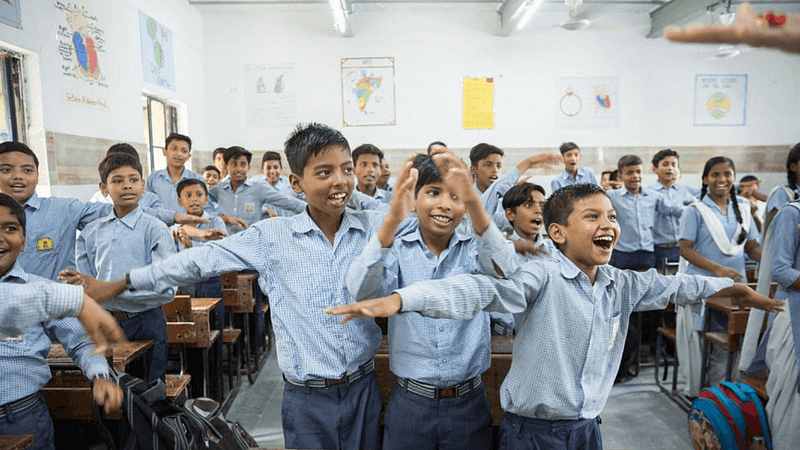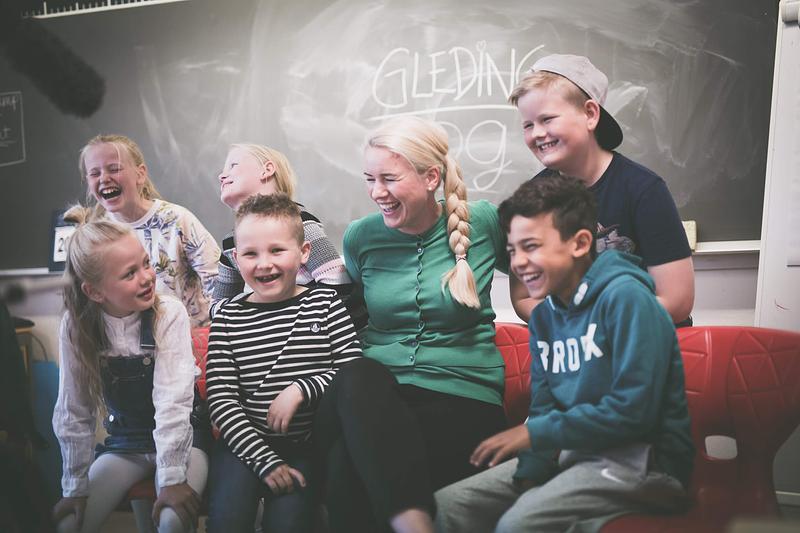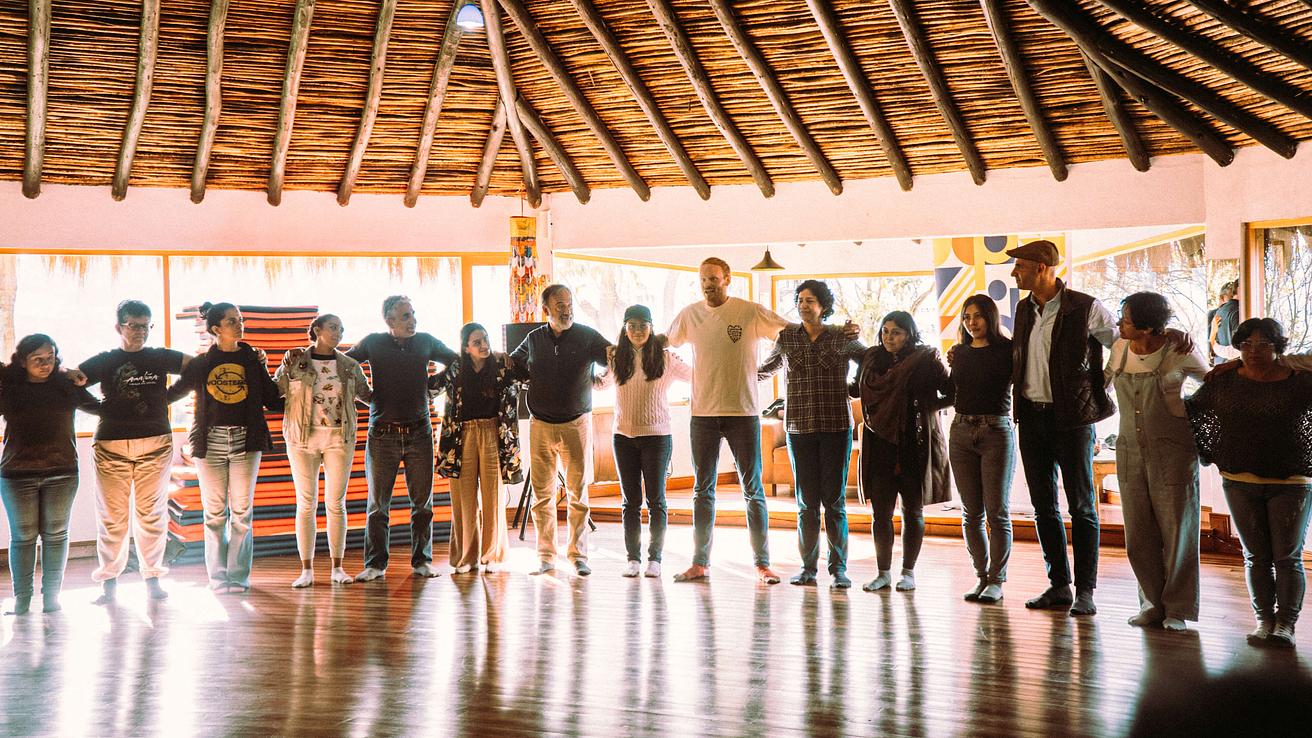Are our schools doing enough to support the emotional and social development of our young people? Today’s students are used to mediating their behaviour through technology, which provides a level of anonymity that can be used to protect them from bullying just as easily as it allows for internet trolls to thrive. How can schools ensure that their students are able to make choices that support their wellbeing and build cohesion, collaboration, and trust? 
These questions have sparked a growing movement in education towards Social and Emotional Learning (SEL). SEL is a process through which all young people and adults acquire and apply the knowledge, skills, and attitudes to develop healthy identities, manage emotions, and achieve personal and collective goals. HundrED’s 2024 Global Collection features innovations that recognise the importance of SEL and reimagine how it can be incorporated into education.
SEL as it is understood today began in the 1960s, arising from researchers around Yale University such as James Comer, Roger Weissberg and Timothy Shriver, who sought to improve educational outcomes at schools that had low attendance and poor academic performance. Comer’s School Development Program recognised that students are better able to learn when they are comfortable with their environments, their peers, and especially with themselves.
“No significant learning can occur without a significant relationship” - Dr. James Comer
This philosophy represented a fairly radical shift in how schools envisioned their work: within those four walls, academics reigned. Dr. Comer’s innovation was to show that academics flourish when students are equipped with the tools to be comfortable. Today, the framework of SEL is well established, with strong support from CASEL (the Collaborative for Academic, Social, and Emotional Learning), who provide the definition of SEL given above. The CASEL framework lays out 5 broad themes in SEL:
- Self-awareness: the ability to recognize one’s own emotions and the patterns that accompany them.
- Self-management: the ability to regulate one’s emotional and behavioral states.
- Social awareness: the ability to recognize the emotions and patterns of behavior of others.
- Relationship skills: the tools required to create, maintain, and foster healthy interactions with others.
- Responsible decision making: the tools required to think critically about the consequences of actions and choices.
These frameworks aren’t just fluff, however. Repeated meta-analyses have shown that SEL programs have real, lasting positive impacts on student’s self image, emotional skills, school engagement, test scores, and peer relationships. Several of our innovators, including Educating for Wellbeing, Edumocíon, Gleding - Childhood for Life, and Labhya Foundation, have found new ways of bringing SEL to the populations that need it the most, focusing on teachers, students, and bullying as well as the wider context that students are in.
"It's a positive feedback loop since children and teachers influence each other" - Daniela Labra
For the creators behind Educating for Wellbeing (EW), it was the teachers who would be showing their students the strategies for emotional awareness and regulation: “Developing adult skills, adult social and emotional competence, is core to our theory of change. SEL implies modeling, and adults are usually not given the how and the time to develop their social and emotional competency. If we want teachers to be able to teach empathy, self-regulation or self-reflection, we also need to help them learn how to do it for themselves,” says Educating for Wellbeing General Director Daniela Labra. EW equips the teachers who complete its programme with the skills they need to bring SEL skills to the classroom, then provides them with a full curriculum to pass on to their students. This top-down approach creates space for emotional growth in the school day - making taking time to understand each other a normal part of learning.
%20(1).jpg) Daniela views SEL as a virtuous cycle of reinforcement: “We see a significant increase in teachers' capacity to self-regulate, their prosocial attitude, well-being, self-awareness, and self-agency. Children also significantly increase their emotional self-regulation and prosocial behaviour. It's a positive feedback loop since children and teachers influence each other.”
Daniela views SEL as a virtuous cycle of reinforcement: “We see a significant increase in teachers' capacity to self-regulate, their prosocial attitude, well-being, self-awareness, and self-agency. Children also significantly increase their emotional self-regulation and prosocial behaviour. It's a positive feedback loop since children and teachers influence each other.”
Another Latin American SEL innovation that focuses on teachers is Edumoción, which tries to make SEL more approachable for educators who may already be feeling overwhelmed with their workloads. The Edumoción curriculum is broken into bite size chunks that give clear, actionable goals and lessons for teachers to implement directly into their courses. "Research from Harvard's SEL Kernels of Practice (another Global Collection innovation!) tells us that bite sized, flexible activities are an effective and adaptable approach to SEL education. The findings on the effectiveness of microlearning led us to reevaluate why learning had to be "long" to be deep. (Hint: it doesn't)." explains Nicole Bruskewitz, Director of Education at Coschool, who develop the programme. These easily absorbable lessons have fed the programme’s high completion and engagement rates - and helped build a community of educators who are able to provide support for each other (a key aspect of SEL’s focus on relationship management!). This network is key to helping build resilient schools and educational systems.
[Teachers] remark that when they discover that they are not the only ones facing challenges, they emotionally supported and less alone.
Nicole shares the importance of supporting teachers in this learning: "When the pandemic ended, we conducted a study ... in impact evaluation. We asked educators what their most pressing needs were post-pandemic. The majority (67%) highlighted that the biggest challenge they are facing is related to mental health and social emotional wellbeing. This includes both their students´ challenges and their own. Indeed, humanity at large is facing a mental health crisis that certainly permeates schools.The truth is, until recently, social emotional education was not even on the educational map. Thus, most teachers have never received training in the topic. So it is pressing to teach educators how to cultivate emotional and social skills key to mental health and emotional wellbeing like self-awareness, emotional regulation and relationship skills."
Among the core drivers of SEL in schools is the prevalence of bullying. Gleding - Childhood for Life hopes to leverage SEL to stop bullying before it starts. Intended to be an antonym for bullying, Gleding finds innovative uses of engaging narratives and relatable characters to instill in preschool students the power of empathy and kindness - both towards themselves (self-awareness) and toward their future classmates (social awareness). This approach honors students' experiences at every age and helps young ones to develop agency within their world.

Gleding founder Siri Abrahamsen says that young learners develop their SEL skills by following positive examples set by adults in their life and practicing those skills in a safe environment: “With our stories and tools we give a raw and honest approach to life. We believe that life is wonderful and messy at the same time. It is really about being transparent adults, who show calmness and responsive behaviour without being reactive…When professionals and parents are able to sit with the difficult topics and processes in life, chances are high that children will become resilient. Going through tough times together - experiencing social support and belonging makes us able to approach life with an open mind and heart no matter the circumstances”
Detractors of SEL often dismiss the concept as too soft and without real merit in equipping students to excel in the “real” world after school. One Global Collection innovation based in India, Labhya Foundation, seeks to refute this idea by focusing on the students within their target who lack adequate access to multiple resources - they may not have access to quality education, healthcare, water, or future opportunities in addition to material wealth.
Labhya has found that equipping these most vulnerable students with SEL skills is a powerful lever for helping them escape poverty. In careful conjunction with government policy changes, Labhya’s programs are now implemented across schools in Delhi demonstrating that SEL skills have the power to transform the lives of students who could benefit most.
"Social support and belonging makes us able to approach life with an open mind and heart no matter the circumstances" - Siri Abrahamsen
SEL is a promising approach to education that has the potential to transform the way we think about teaching and learning. By prioritizing the social and emotional development of our young people, we can create more resilient, compassionate, and successful individuals.
To learn more about education innovations working to improve the lives of children around the world, check out our latest Global Collection 2024 report.




